What has Aarhus ever given to us? – Voru team’s staff exchange diary
Edited on
04 September 2022It seems that everything one can learn about tackling social welfare and inclusivity – we say this based on the fact that the two staff exchanges in SIBdev’s history were both organised in the Danish city. First they welcomed the almost neighbouring Voru delegation to learn about the handling problematic youth and people with dementia in May 2022, while in July 2022 Portuguese colleagues visited the city to learn mostly about the DOKK1 centre of citizen involvement. We are sharing with you Voru team’s travel diary.
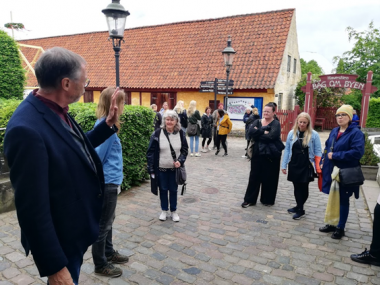
On 23-26th May 2022, People working in the social fields of Võrumaa municipalities participated in an experience and study visit to Aarhus, Denmark.
During the exchange trip participants got acquainted with various social system services and projects, all characterised by active involvement of the citizens. The Voru team defined the organization of services and information for people with dementia and their relatives as their most important challenge in their practice, looking for good practices in this field.
The starting and ending point of understanding the „Aarhus method” is the immersion in DOKK1, the so-called state house. DOKK1 is a huge building in the centre, giving home to the city library, the city residents' service sector in terms of providing public services, also offers a digital urban lab and home of a public playgrounds for children. In this special house we received an inroduction to the activities of the Aarhus Department of Health and Care by Anders Kristian Krogager Andersen, consulent for dementia-related care.
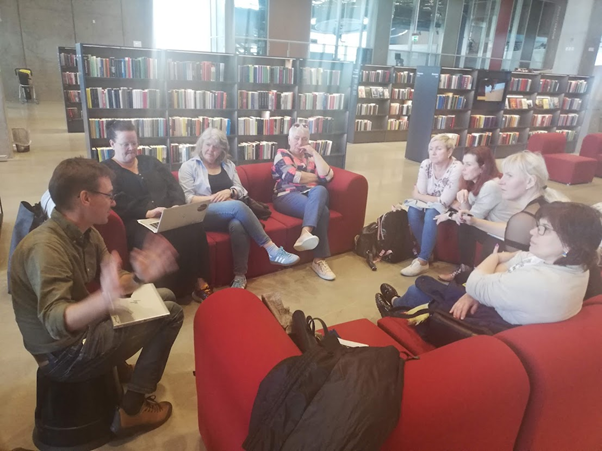
He explained that the organisation of social services in Aarhus are based on three statements:
- We keep citizens away from social care - the idea is that a person can manage independently for as long as possible.
- All the power to the citizens - we engage and ask what people need.
- We are together with the citizens - we look for good solutions and opportunities together.
Going into details in social care for people living with dementia, Voru team learnt the following. If a person has problems with self-sufficiency, a so-called family-based network is built around him. If the person can still manage at home, home service is possible, where help is provided with medicines, cleaning, etc. As the problems escalate, day centers where various social activities are available and health centers where it is possible to participate in various courses. The last stage, in Aarhus’ understanding, is a nursing home, where a person usually has a single room with a small kitchenette, toilet and washing facilities.
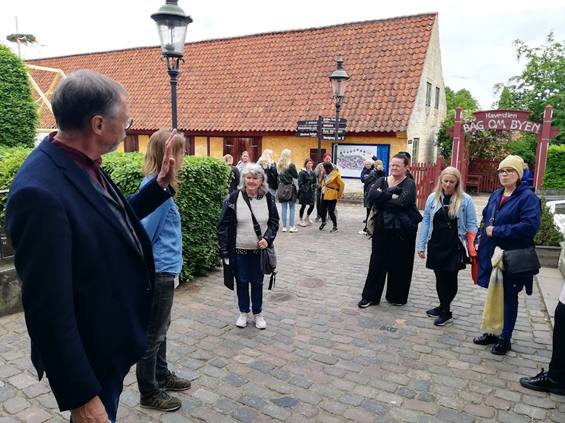
Voru team was also introduced to an artistic programme provided by the open-air museum of Danish heritage „Den Gamle By”, which runs a programme for people with dementia syndrome. This programme is taking place in the ’Apartment of Memories’, which is a living exhibition, where people can bring their old objects and provide stories with them – so when they visit in the state of dementia, this helps them remember.
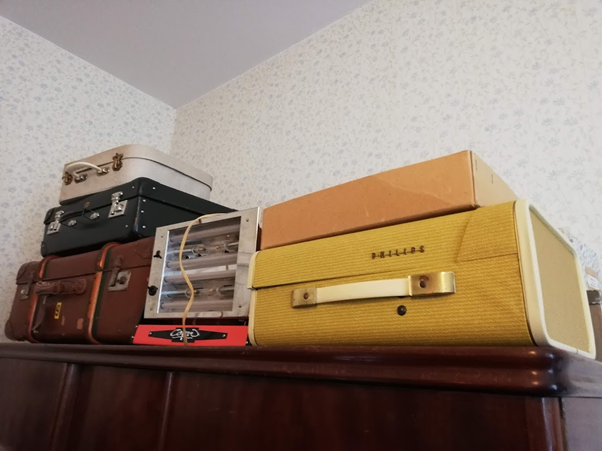
Aarhus team also introduced the Estonian colleagues to the general approach they follow in mental healthcare: the ’open dialogue’ method. In contrast to standard treatments for early psychosis and other crises, ’open dialogue’ emphasizes listening and understanding and engages the social network from the very beginning – rather than relying solely on medication and hospitalization. This is the guiding principle of organising their healthcare services, in line with what was presented in DOKK1.
The team left Denmark with a lot of learning to digest and try to introduce in Estonia, with the main message of the Danish way: cross-sectoral delivery and cooperation of social services, healthcare, education and all other departments.
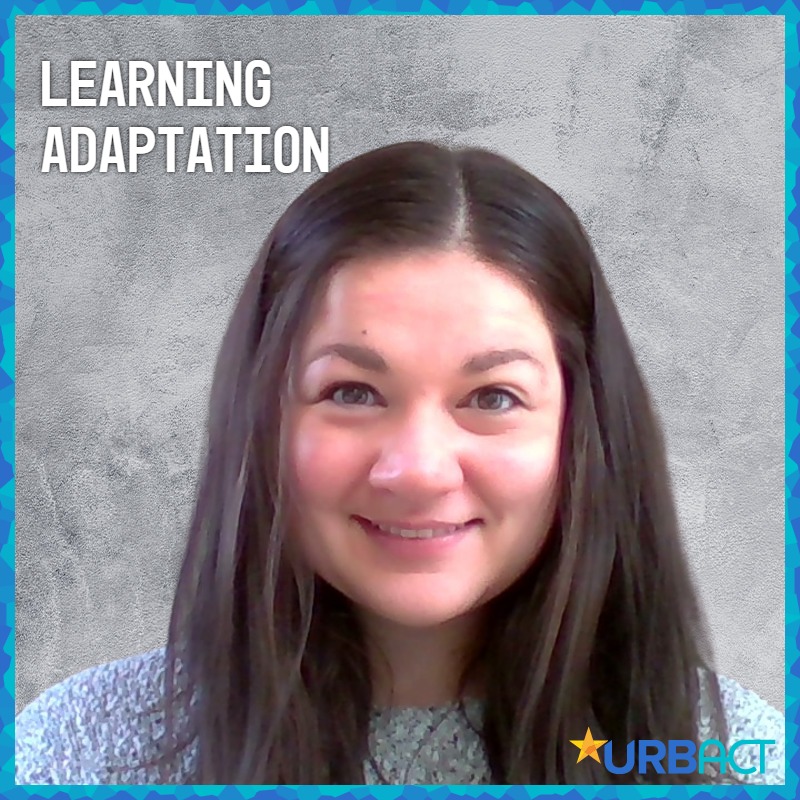 Submitted by Nora Kebel on
Submitted by Nora Kebel on
